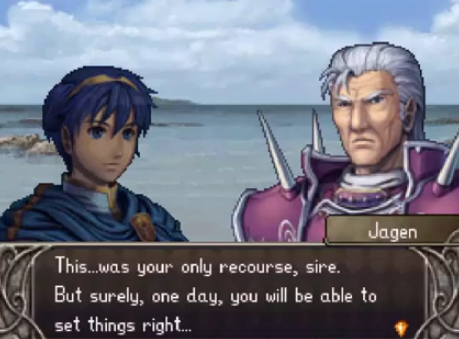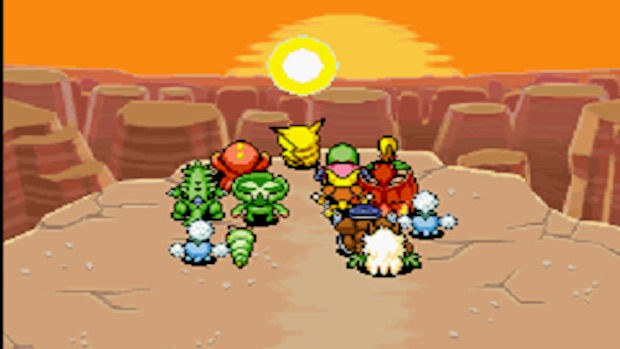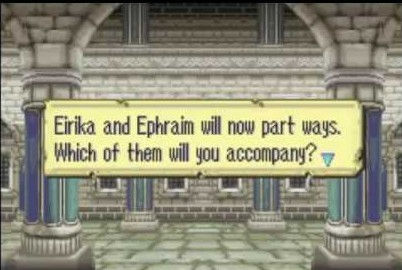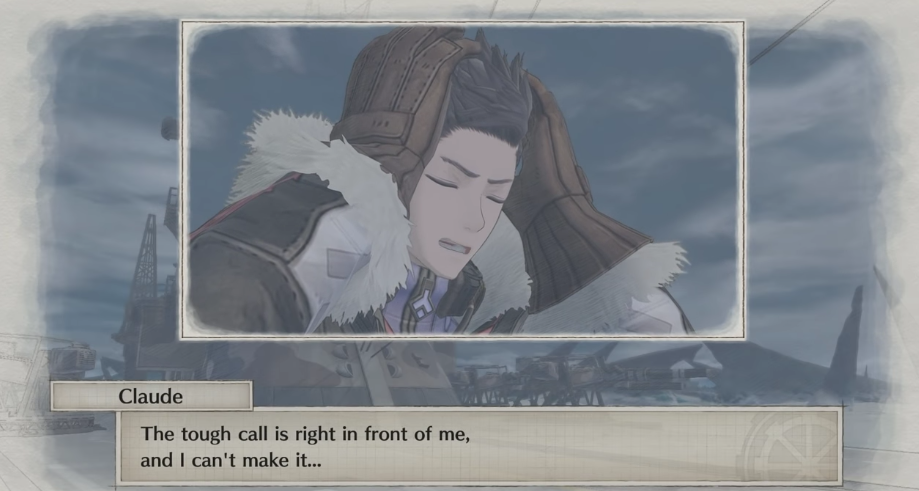Forcing Tough Decisions onto the Player
- Reed Priest
- Dec 8, 2018
- 5 min read
Updated: Feb 3, 2019
(Minor spoiler warning)
Decisions are a regular component of life and games. Because games would be completely stagnant without the player’s decisions, they hold value in orchestrating gameplay. Aside from the countless decisions that games regularly pose upon the player, games occasionally force the player into an uncomfortably tense moment where his/her decisions shape the rest of the game. These pivotal choices result in a heightened sense of importance that command the player’s engagement. Although there are many reasons for requiring these tough decisions, they ultimately intend to enhance the context in which gameplay is enjoyed.
Difficult decisions enhance atmosphere

Game designers often craft their art with a specific feeling they intend the player to experience. Burdening players with stressful choices represent a hardhanded method to synthesize that feeling of significance. In one of the first missions in Fire Emblem: Shadow Dragon, game designers tax players with an oppressive choice. To convey the brutality of war in this arduous strategy game, the plot requires the player to sacrifice one of their units to ensure the rest of their army can escape. Rather intimidating due to its early appearance in the campaign, this order strains the player and communicates the harshness that the game designers’ intended. Given the game’s large roster of units, this decision’s minor, negative effect on gameplay cannot compare to how its richening of atmosphere elevates overall gameplay.

While Fire Emblem: Shadow Dragon introduced this moment at one point, some games are built upon the player constantly choosing important decisions that shape the story’s scope and content. The austere, story-driven game Oxenfree, for example, details the journey of several teenagers while on a paranormal island. The player retains a fair amount of autonomy, being able to decide at several points where to go, with whom to go, and what topics to discuss. Near the end of the short adventure, the player also possesses the ability to shape the game’s ending, along with the fates of its characters. When the plot forces the player to decide what he/she values most, the game follows with a fitting ending that ranges from satisfying to depressing. The ending choices that Oxenfree thrusts upon the player easily multiplies playtime and depth while also matching an atmospheric conclusion to the player’s decisions.

Pokémon Red Mystery Dungeon conveys a more emotional example of harsh decisions. The game weaves together a heartwarming story about a human waking up as a Pokémon, befriending a teammate Pokémon, helping others through missions, and eventually saving the world from destruction. As the climax approaches, the protagonist becomes aware that if they save the world, they will return to their original human world, leaving behind their Pokémon friends. Although understandably saddened by this reality, the player recognizes their need to regardlessly save the world. Although the game permits the player to run from this harrowing decision by completing side missions, the main objective of saving the world still looms. Once the player accepts the emotionally challenging decision to save the world and subsequently abandon their Pokémon friends, the game’s climax and final battle commands the player’s commitment. Afterwards, the player endures a powerfully moving and tragic cutscene of leaving the friendships they forged over many hours and adventures. Sorrowful music mourns the player’s decision as they bittersweetly depart. Regardless of the plot that follows, this moment represents the emotional weight of harrowing decisions. The significance, music, and dialogue combine to create an unforgettably spellbinding tone, all because of the player’s response to a monumental choice.
Difficult decisions drive plot

While difficult decisions may contribute to atmosphere, their inclusion typically relates to plot progression. To encourage repeat playthroughs in Fire Emblem: Sacred Stones, the player’s path splits between the two protagonists. The player can either follow Eirika’s path, resulting in a richer understanding of plot and character dynamics, or follow Ephraim’s path, resulting in a harsher array of battles and gameplay. This choice deserves praise because in addition to encouraging additional playthroughs, it offers variety by matching player preferences to game components. Both paths tackle different content, offering the player varied perspectives to more fully enjoy the game’s story.

As a more stressful decision, Valkyria Chronicles 4 usurps the player’s expectations by requiring the character to send their best unit and friend on a suicide mission. The entire game, this character’s larger-than-life personality and essential contributions to gameplay have enriched the player’s experience. Now, the player is required to sacrifice this lovable character. Players see their inner struggle materialized by the story’s other characters voicing their concerns with this choice. But with no other option, the protagonist orders his best friend to bravely journey into enemy territory to save the rest of his squad. As if this daunting decision were not already difficult enough, the player eventually endures a crushing cutscene depicting this character’s death after he executes his suicide mission. Were it not for this unit’s selfless sacrifice, the plot could not progress. And now without this key character, the player becomes more driven to avenge his friend’s death, thereby adding motivation to the player’s gameplay. This irrevocable decision profoundly impact the player’s plot progression, adding depth and significance to the story.
Difficult decisions drive gameplay

Regarding their most crucial implication, daunting decisions also orchestrate gameplay. In any tactical RPG, the strategies that players utilize directly affect gameplay. Choosing Bulbasaur or Squirtle instead of Charmander in Pokémon Red and Blue, for example, results in a far easier experience during the first gym. Because the player can choose only one of these highly powerful and likable Pokémon, this decision has weight from its implications for the rest on the player’s journey since they likely make the starter Pokémon a key member of their party. Similarly, the player’s intended strategy for their deck in any Yu-Gi-Oh game phenomenally impacts gameplay through which cards are collected and which tactics are implemented.

With a high-risk high-reward system, Super Smash Bros Wii U infuses an ante in its Classic mode where the player pays an x amount of gold to potentially earn more. Higher difficulties require higher initial deposits, but can reap far greater rewards than easier difficulties. The intricacies of this choice lie in the player’s evaluations of his/her skill. What level of challenge is too hard for the player, and how can the player maximize rewards? Once this complex decision is made, gameplay follows that matches the level of difficulty selected.
Conclusion
As a method to raise stakes and establish a sense of importance within the player, pivotal decisions help elevate a game to a higher state of drama. These daunting choices either benefit gameplay directly or indirectly by enhancing atmosphere or progressing plot. Horror games typically strive to instill a sense of dread in their players, yet this feeling can aid other genres as well from the sense of realism and gravity it instills in the player. By crafting a more visceral gameplay experience, tough decisions create memorable moments by enhancing the gameplay experience.



Comments